Related Research Articles

Jean Maurice Eugène Clément Cocteau was a French poet, playwright, novelist, designer, filmmaker, visual artist and critic. He was one of the foremost artists of the surrealist, avant-garde, and Dadaist movements and an influential figure in early 20th century art. The National Observer suggested that, "of the artistic generation whose daring gave birth to Twentieth Century Art, Cocteau came closest to being a Renaissance man."

André Robert Raimbourg, better known as André Bourvil, and mononymously as Bourvil, was a French actor and singer best known for his roles in comedy films, most notably in his collaboration with Louis de Funès in the films Le Corniaud (1965) and La Grande Vadrouille (1966). For his performance in Le Corniaud, he won a Special Diploma at the 4th Moscow International Film Festival.

Marie-José Benhalassa, known professionally as Marie-José Nat, was a French actress. Among her notable works in cinema were the sequel films Anatomy of a Marriage: My Days with Jean-Marc and Anatomy of a Marriage: My Days with Françoise (1963), directed by André Cayatte. In 1974, she received a Cannes Film Festival Award for Best Actress for her performance in the film Violins at the Ball.

Jean Raoul Robert Rochefort was a French actor. He received many accolades during his career, including an Honorary César in 1999.
Roland Lethem is a Belgian filmmaker and writer.
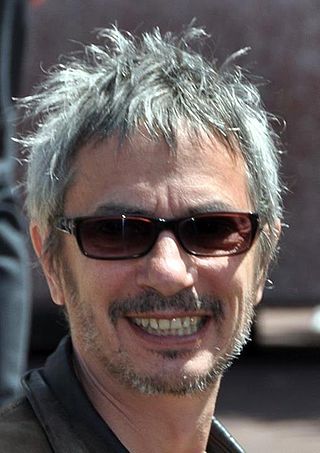
Alex Christophe Dupont, best known as Leos Carax, is a French film director, critic and writer. Carax is noted for his poetic style and his tortured depictions of love. His first major work was Boy Meets Girl (1984), and his notable works include Les Amants du Pont-Neuf (1991), Holy Motors (2012) and Annette (2021). For the last, he won the Cannes Film Festival Award for Best Director at the 2021 Cannes Film Festival. His professional name is an anagram of his real name, 'Alex', and 'Oscar'.

Les Amants du Pont-Neuf is a 1991 French film directed by Leos Carax, starring Juliette Binoche and Denis Lavant. The film follows a love story between two young vagrants: Alex, a would-be circus performer addicted to alcohol and sedatives, and Michèle, a painter with a disease that is slowly turning her blind. The streets, skies and waterways of Paris are used as a backdrop for the story in a series of set-pieces set during the French Bicentennial celebrations in 1989.

Michel Simon was a Swiss-French actor. He appeared in many notable French films, including La Chienne (1931), Boudu Saved from Drowning (1932), L'Atalante (1934), Port of Shadows (1938), The Head (1959), and The Train (1964).

Lucienne Delyle was a French singer.
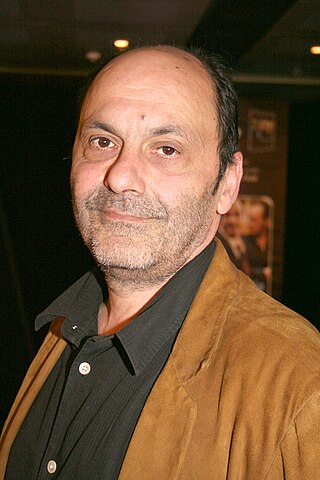
Jean-Pierre Bacri was a French actor and screenwriter.
The 17th César Awards ceremony, presented by the Académie des Arts et Techniques du Cinéma, honoured the best French films of 1991 and took place on 22 February 1992 at the Palais des Congrès in Paris. The ceremony was chaired by Michèle Morgan and hosted by Frédéric Mitterrand. Tous les matins du monde won the award for Best Film.
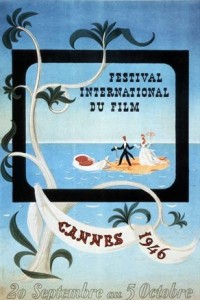
The 1st annual Cannes Film Festival was held from 20 September to 5 October 1946. Twenty-one countries presented their films at the "First Cannes International Film Festival", which took place at the former Casino of Cannes. Only one year after the end of World War II, most of the films were about the war. There arose several technical issues, such as the tarpauline cover blowing away in a storm on the day before the winners were to be announced, the reels of Alfred Hitchcock’s Notorious shown in reverse order, and Miguel M. Delgado’s The Three Musketeers projected upside-down.
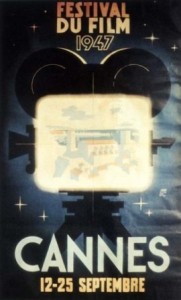
The 2nd Cannes Film Festival was held from 12 to 25 September 1947. The new building that was meant to host the festival, the Palais du Festival, was still not ready, and the festival was held amid many technical and financial problems. In 1947, the entire jury of the Festival were French. Six awards were given to films of different categories.

The 3rd Cannes Film Festival was held from 2 to 17 September 1949. The previous year, no festival had been held because of financial problems.
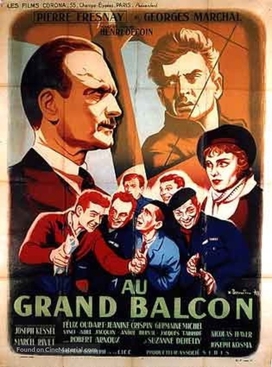
At the Grand Balcony is a 1949 French drama film directed by Henri Decoin and starring Pierre Fresnay, Georges Marchal and Félix Oudart. It was entered into the 1949 Cannes Film Festival. The film's sets were designed by the art director René Renoux.
René-Jean Chauffard was a French film actor. He appeared in 40 films between 1945 and 1972.
René Génin was a French stage and film actor. He appeared in more than 130 films between 1931 and 1965.
The Lovers of Teruel is a 1962 French musical film directed by Raymond Rouleau. It was entered into the 1962 Cannes Film Festival.
Jean Aurenche was a French screenwriter. During his career, he wrote 80 films for directors such as René Clément, Bertrand Tavernier, Marcel Carné, Jean Delannoy and Claude Autant-Lara. He is often associated with the screenwriter Pierre Bost, with whom he had a fertile partnership from 1940 to 1975.
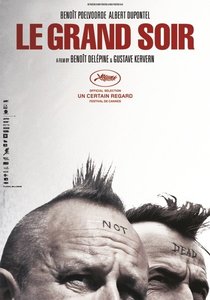
Le Grand Soir is a 2012 French-Belgian comedy-drama film directed by Benoît Delépine and Gustave de Kervern. The film competed in the Un Certain Regard section at the 2012 Cannes Film Festival where it won the Special Jury Prize. It won the Magritte Award for Best Costume Design.
References
- ↑ "Festival de Cannes: Les Amants du pont Saint-Jean". festival-cannes.com. Retrieved 4 January 2009.